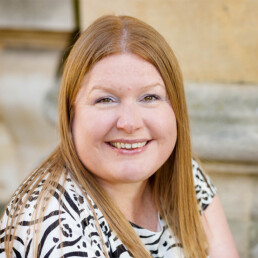Positive Intelligence

Hannah Wilson
I found out about Positive Intelligence or PQ from a friend and coaching colleague, Julie Rees. She built it into one of the sessions she has designed and delivers on awareness for the Resilient Empowered Authentic Leaders (REAL) programme I have curated and lead. The associates who deliver and coach on the programme have all been trained as Resilient Leader Elements consultants, and quite a few of them have also done the C-Me Colour Profiling train-the-trainer accreditation too.
Julie was the only one who had done the PQ training which I had seen delivered but had not yet personally experienced, but then I started following Shirzad Chamine the founder of Positive Intelligence on LinkedIn to find out more about his research and I found out about an opportunity to get involved. For the last 8 weeks I have been on an intense programme with 5 coaching colleagues and associates (Clare, Heather, Isa, Nicky and Vicki), following a weekly schedule of learning activities with daily practices to flex our mental fitness.
So what exactly is Positive Intelligence (PQ)?
PQ measures the strength of an individual’s positive mental muscles (the ‘Sage’) versus their negative mental muscles ( their ‘Saboteur’). The self-command muscle is the ability an individual has to boost their sage and dampen down their saboteur (Chamine, 2012).
The breakthrough contribution of Positive Intelligence research is through factor analysis to discover the core factors that impact both performance and wellbeing. This research revealed that there are only 10 negative response factors (10 Saboteurs) and only 5 positive response factors (5 Sage powers).
To kick off the 8-week intensive we all had to take the PQ Saboteur Assessment which anyone can take for free. You can discover your saboteurs here.
And what are our Saboteurs?
We all have The Judge as our primary saboteur – our judge limits us by critiquing ourselves, others and our environment. But then we have accomplice saboteurs which the assessment identifies for you. Mine are The Controller, The Stickler and Restlessness.
When we are stressed or under our pressure our saboteurs are activated to protect us and the PQ programme helps us identify these mental patterns and behaviour habits, to bring our awareness to managing them and consciously reframing them.
My controller tells me that by controlling things I am being more efficient and effective which will make me more productive and higher-performing, my stickler tries to protect me by reinforcing my boundaries and pushing back on things to follow the rules, and my restlessness means that I can take on too much and magpie too many ideas/ start too many projects/ ping from one thing to the next.
Everyone suffers from limiting beliefs, the imposter syndrome and the inner critic in different ways, but this programme gave a more refined analysis of the factors for us to focus on to then apply an incremental, marginal gains type approach to developing new habits.
And how do we learn to manage them?
As part of the programme we all got access to an app which had 5 different types of activities, very similar to mindfulness practices, which lasted 2/5/12 mins which we could choose from. Our intensive programme trained us to build new daily habits. These practices build up the muscle memory and create the mental fitness to become more self-aware, more self-regulated and more self-managing in our tendencies for how we respond to stress and pressure.
Personally with moving out of my home nearly 2 months ago, and pinging from one Airbnb to the next ever since, I think this came at exactly the right time for me as it gave me an anchor to ground me and manage any stress/ frustrations coming my way from buying and selling a house in the current climate.
As the programme progressed we moved from focusing on our saboteurs to focusing on our sages which are our inner resources that we need to strengthen and activate. Our sage is our compass which gives us the clarity to navigate uncertainty and handle challenges with a calm mind through positive emotions. By empathising, exploring innovating, navigating and activating we can reframe situations and relationships to better serve us.
I am still a beginner with this and will continue to develop my practice with the ongoing support of my pod of peers, but if you are interested in finding out more check out my PQ toolkit here.
